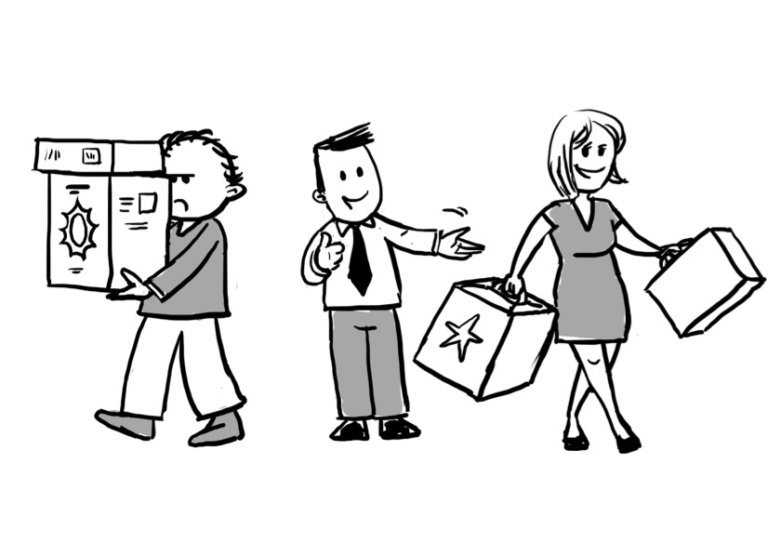The covid pandemic clearly highlighted those companies that truly care about their customers and which provide customer service excellence.
If a company claims to be customer centric, they must not just talk the talk, but walk the talk too. The pandemic gave many people more time to review from whom they bought and what services they were getting in return.
A few years ago I was prompted to question my own purchase decision of cable services from the Swiss company UPC-Cablecom. It had been known to have a long-term deficit in customer service excellence versus its main competitor Swisscom. And as recent PWC research shows, 86% of buyers are willing to pay more for a great customer experience.
Swisscom has made customer service their MSP (main selling point or value proposition) and they were renowned for putting their customers first. UPC-Cablecom, on the other hand, had until then, been trying to win customers through non-stop promotions and aggressive price cutting. In today’s connected world, especially where the internet is concerned, dissatisfied customers will be quickly heard – across the net.
Back to the incident that prompted this post. After a few days of being ignored by UPC-Cablecom – my perception at least, because my emails and phone calls were not being answered – I’m somewhat embarrassed to say that I resorted to Twitter.
More than five years ago, Twitter was first referred to as today’s customer service centre. Social media usually guarantees a quick response, since contacting customer services through the usual channels often results in no reaction for hours if not days.
What makes a great customer care centre?
Customers these days expect a response in minutes or hours rather than days. Research shows that nearly half of all customers (46%) expect companies to respond faster than 4 hours, and 12% expect a response within 15 minutes or less. And yet the average time to respond to customer service requests is currently 12 hours and 10 minutes! How do your own customer service response times compare? As you enjoy my blog posts I assume they are significantly better.
Most call centres are a frustrating, if sometimes necessary, experience for (often dissatisfied) customers to endure. In many cases, they are automated, with a long and complex self-selection process of button pushing to arrive at the department one needs – if you’re lucky that is!
But too often the result of all that effort is just a recording telling you to call back later as the department needed is not open at the moment, or that the collaborators are currently busy and to please stay on the line.
We are next subjected to music supposedly designed to calm our nerves, interspersed with messages suggesting alternative solutions to waiting in line. Go to the website to find a solution in their available FAQs, complete a contact form, or send an email. I find this insulting since I am sure most people only call after trying to find a solution online – anything so they don’t have to suffer these long waits!
And then, of course, to add insult to injury, we hear the trite message about our call being important to the company! Really? If so you’re not showing it, you’re not walking the talk.
Some companies that have understood their customers’ frustration with long help-line queues, have found alternative solutions such as offering a callback. Of course, providing sufficient staff to cover the busiest times, or at least to be available when the customer is most likely to need support, would be the simplest and most acceptable solution, no?!
Today there is no excuse for a consumer goods company in particular to not be ready to help their users when they need it the most. For example:
- Early morning or late at night for personal care products
- Breakfast, lunch and evening meal times for food manufacturers
- Evenings and weekends for TV and technology products
While in a few cases, a few customers may use Twitter to jump the call centre queues, in most cases, it is only used as a customer’s final cry for help, after being frustrated by long waits on call centre help lines or self-service selections that led the customer nowhere except around in circles.
Are these the seven best qualities for call centre advisors, or are there more “Ps” that you would add? If you have suggestions, then please add them in the comments below, especially you Jimmy if you read this!
Do you believe that your CSRs could do more for your customers? Then we would love to support you. We know we can help, just tell us where and when. Contact us here and check out our website for more information on our services: http://C3centricity.com/training
This cornerstone article is regularly updated; the original version was posted on C3Centricity in February 2013.







